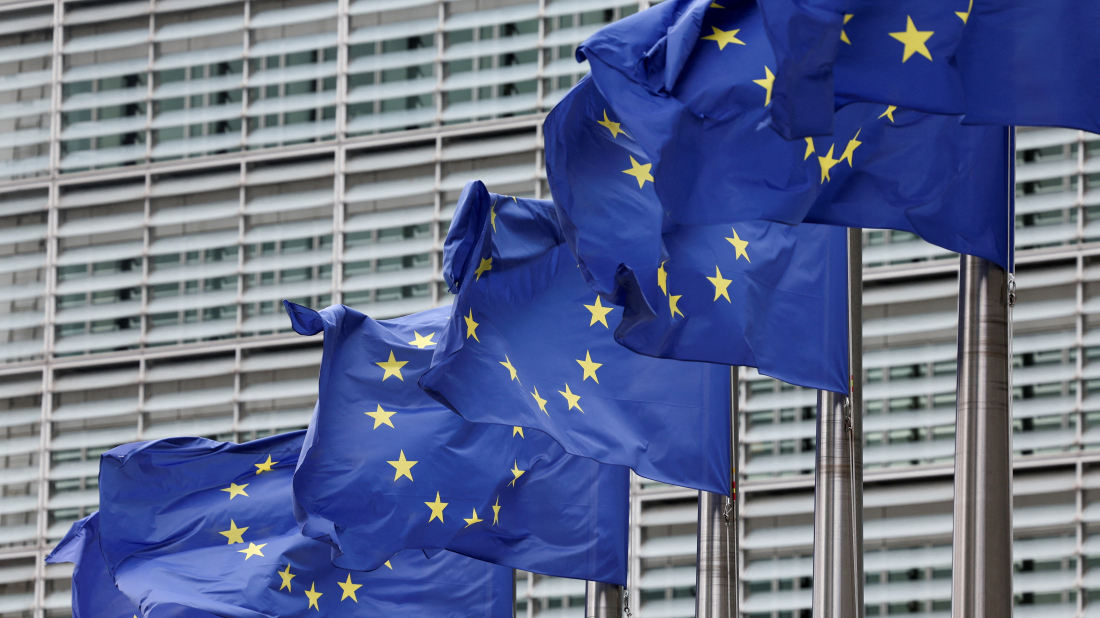AnewZ Morning Brief - 22 February, 2026
Start your day informed with AnewZ Morning Brief. Here are the top news stories for the 22nd of February, covering the latest developments you need to...

European Union leaders on Thursday agreed to meet Ukraine’s urgent financial needs for the next two years but stopped short of formally backing the use of frozen Russian assets to provide Kyiv with a major loan, following objections raised by Belgium.
“The European Council commits to addressing Ukraine’s pressing financial needs for 2026–2027, including those related to its military and defence efforts,” read a statement adopted at a summit in Brussels by all EU leaders except Hungary.
According to the text, seen by Reuters prior to its official release, the European Commission has been asked to present “options for financial support based on an assessment of Ukraine’s financing needs” as soon as possible.
It also stated that, in line with EU law, “Russia’s assets should remain immobilised until Russia ends its war of aggression against Ukraine and compensates for the damage caused.”
However, the statement did not explicitly endorse the use of these assets to finance a “reparation loan” worth around €140 billion (£120 billion), as proposed by the European Commission and supported by several member states.
A previous version of the draft conclusions had included a line urging the Commission to “present concrete proposals involving the possible gradual use of the cash balances associated with the immobilised Russian assets,” but this sentence was removed in the final text.
Many EU diplomats had anticipated that leaders would instruct the Commission to prepare a formal legal proposal for the reparation loan plan based on Russian assets.
Belgian Prime Minister Bart De Wever, whose country hosts the bulk of the frozen Russian funds through the Euroclear securities depository, set out three conditions to ensure Belgium would not bear all the associated risks.
“If the demands are met, we can move forward. If not, I will do everything in my power, both at the European and national level, politically and legally to stop this decision,” De Wever warned upon arriving at the summit.
He called on all EU member states to share the financial burden if legal action were taken by Russia and to contribute if any of the money had to be repaid. De Wever also insisted that Russian assets held in other countries should be included in the scheme.
“There must be transparency about the risk, and transparency about the legal basis for this decision,” he said.
Quentin Griffiths, co-founder of online fashion retailer ASOS, has died in Pattaya, Thailand, after falling from the 17th floor of a condominium on 9 February, Thai police confirmed.
A seven-month-old Japanese macaque has captured global attention after forming an unusual but heart-warming bond with a stuffed orangutan toy following abandonment by its mother.
Ukraine’s National Paralympic Committee has announced it will boycott the opening ceremony of the Milano Cortina 2026 Paralympics in Verona on 6 March, citing the International Paralympic Committee’s decision to allow some Russian and Belarusian athletes to compete under their national flags.
Divers have recovered the bodies of seven Chinese tourists and a Russian driver after their minibus broke through the ice of on Lake Baikal in Russia, authorities said.
President Donald Trump said on Saturday (21 February) that he will raise temporary tariffs on nearly all U.S. imports from 10% to 15%, the maximum allowed under the law, after the Supreme Court struck down his previous tariff program.
Start your day informed with AnewZ Morning Brief. Here are the top news stories for the 22nd of February, covering the latest developments you need to know.
Islamic State claimed two attacks on Syrian army personnel on Saturday (22 February), saying they marked the start of a new phase of operations against the country’s leadership under President Ahmed al-Sharaa.
Pakistan said it carried out cross-border strikes on militant targets inside Afghanistan after blaming a series of recent suicide bombings, including attacks during the holy month of Ramadan, on fighters it said were operating from Afghan territory.
Ukraine’s President Volodymyr Zelenskyy has approved new sanctions targeting Russian maritime operators, defence-linked companies and individuals connected to Moscow’s military and energy sectors, according to official decrees issued on Saturday.
Divers have recovered the bodies of seven Chinese tourists and a Russian driver after their minibus broke through the ice of on Lake Baikal in Russia, authorities said.
You can download the AnewZ application from Play Store and the App Store.

What is your opinion on this topic?
Leave the first comment